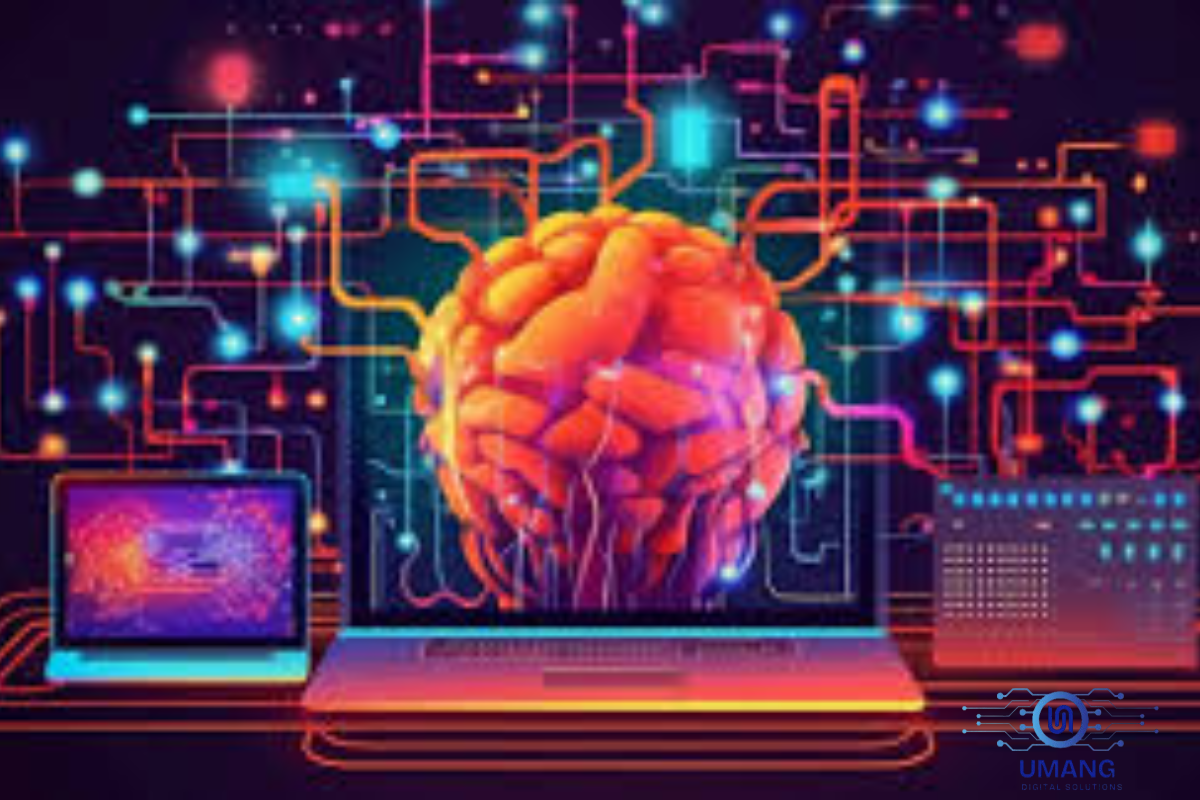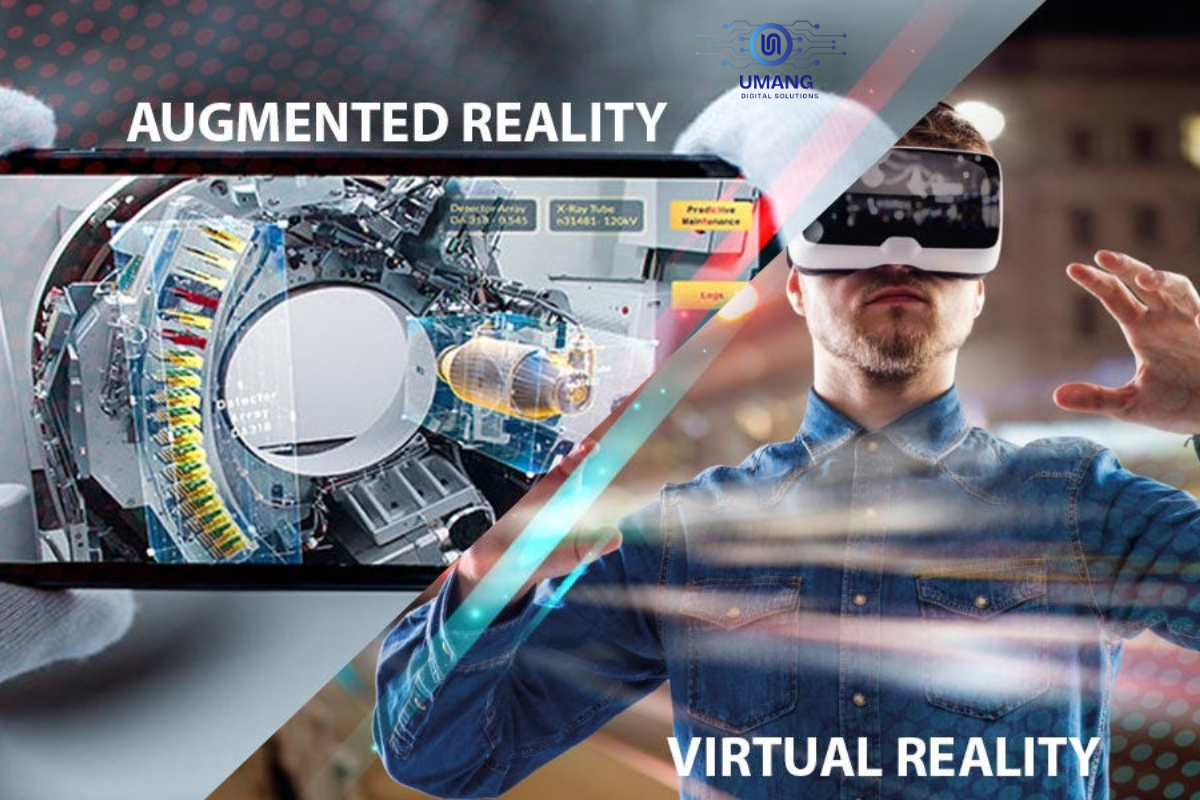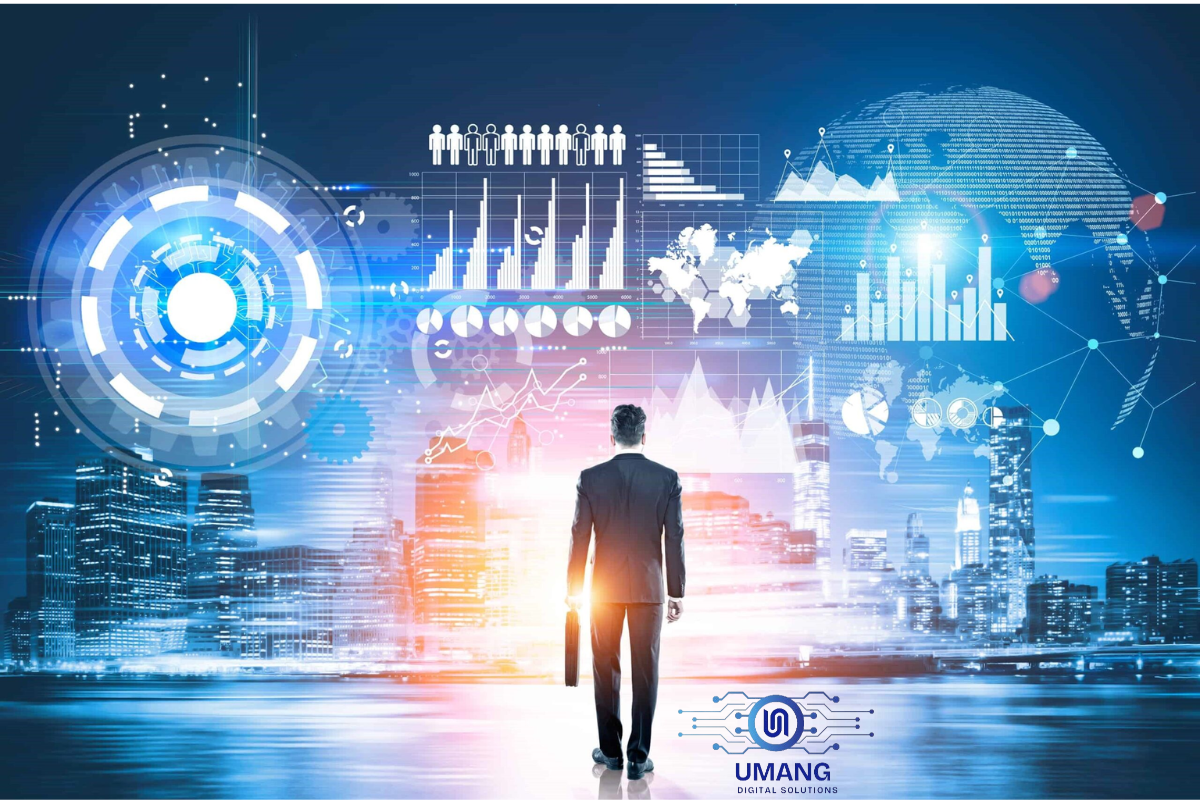Innovative Technologies Transforming Industries Today
Global industry revolution has been fueled in part by the speed at which technology is developing. Cutting-edge technologies, such as blockchain and artificial intelligence, are not only changing how organizations function but also how they provide value to their clients. We will examine some of the most innovative technologies that are now changing industries in this blog, emphasizing both their current effects and their potential going forward.
UmaNg
- Artificial Intelligence and Machine Learning
- Blockchain Technology
- Internet of Things (IoT)
- Augmented Reality (AR) and Virtual Reality (VR)
- 5G Technology
- Quantum Computing
Artificial Intelligence and Machine Learning
Revolutionizing Decision-Making and Automation
Machine learning (ML) and artificial intelligence (AI) are becoming essential to the development of many sectors. These technologies are increasing decision-making, optimizing workflows, and increasing efficiency by empowering machines to learn from data.
Impact on Industries:
Healthcare:
Diagnostic imaging, personalized medicine, and predictive analytics are among the fields using AI and ML. Large data sets can be analyzed by algorithms to find patterns that the human eye is unable to see, which can result in more precise diagnosis and treatment recommendations.
Finance:
Real-time fraud detection, risk management, and algorithmic trading are made possible by AI-powered algorithms, which are revolutionizing the financial services industry. Financial institutions can provide more individualized services by using machine learning (ML) models to forecast consumer behavior and market trends.
Retail:
Artificial intelligence (AI) is applied in the retail sector to improve inventory management, personalize customer experiences, and optimize supply chains. AI-powered chatbots are also enhancing customer service by offering prompt assistance and suggestions.
Future of AI and ML
With AI and ML, the possibilities are essentially endless. We may anticipate much more complex uses for these technologies as they develop, such AI-powered robotics in manufacturing, driverless cars in transportation, and sophisticated AI assistants in daily life.
Blockchain Technology
Redefining Trust and Transparency
Though it was first created as the foundation for virtual currencies like Bitcoin, blockchain technology has much more application than just cryptocurrencies. Because of its decentralized, irreversible ledger system, which offers a new degree of efficiency, security, and transparency, industries are changing.
Impact on Industries:
Supply Chain Management:
Blockchain technology is being used to track the movement of goods from point of origin to point of consumption, lowering the risk of fraud and enabling real-time transparency. Blockchain maintains the integrity of the supply chain by recording every transaction in an irreversible manner.
Finance:
Beyond only cryptocurrencies, blockchain is transforming the financial industry by eliminating the need for middlemen and enabling faster, more secure transactions. Complex financial transactions are being automated and streamlined by smart contracts, which are self-executing contracts with the contents of the agreement explicitly put into code.
Healthcare:
Blockchain is being used in the healthcare industry to safeguard patient data, enhance inter-institutional data interchange, and guarantee pharmaceutical authenticity. Blockchain can lessen errors and stop data breaches by offering a transparent and safe method of managing medical records.
Future of Blockchain
Applications for blockchain technology are expected to grow as it develops, including managing intellectual property rights, voting systems, and real estate transactions. There is also a chance that the ongoing advancement of decentralized finance (DeFi) systems will upend established banking services.
Internet of Things (IoT)
Connecting the Physical and Digital Worlds
The Internet of Things, or IoT, is a network of connected objects that can exchange data and interact with one another online. IoT is revolutionizing industries by facilitating automation, data collection, and real-time monitoring for a variety of uses.
Impact on Industries:
Manufacturing:
Industry 4.0, fueled by IoT, sees smart factories using networked devices to anticipate maintenance requirements, optimize operations, and monitor production lines. This results in cheaper expenses, less downtime, and more efficiency.
Healthcare:
IoT technology, such smartwatches, wearable fitness trackers, and remote monitoring systems, are revolutionizing the healthcare sector by facilitating tailored care and ongoing health monitoring. These gadgets gather information that can be utilized to monitor patients' health, treat long-term issues, and even forecast medical occurrences.
Agriculture:
Precision farming in agriculture is another way the IoT is leaving its imprint. Farmers are empowered to make data-driven decisions that maximize yields while minimizing resource usage thanks to connected sensors that track crop health, weather patterns, and soil conditions.
Future of IoT
The growth of smart cities, where interconnected infrastructure optimizes traffic flow, lowers energy use, and boosts public safety, is where the Internet of Things is headed. AI and ML combined with IoT will make systems smarter and more self-sufficient in a variety of industries.
Augmented Reality (AR) and Virtual Reality (VR)
Creating Immersive Experiences
By fusing the real and virtual worlds, augmented reality (AR) and virtual reality (VR) are completely changing how we interact with the digital world. Immersion experiences are being produced in a variety of sectors, including education and entertainment, because of these technologies.
Impact on Industries:
Entertainment and Gaming:
By producing interactive content and immersive game experiences, AR and VR are revolutionizing the entertainment industry. With VR headgear, users may enter virtual environments, while with AR, digital overlays improve the physical world.
Education and Training:
AR and VR are being used in education to develop interactive learning environments that increase student engagement and retention. VR simulations are also being utilized for training in domains where practical experience is essential, like medical, aviation, and the military.
Retail:
The ability for customers to see things in their own settings before making a purchase is revolutionizing the retail experience thanks to augmented reality. Using augmented reality apps, for instance, users may visualize how furniture would fit in their homes or how clothes would suit them.
Future of AR and VR
We should anticipate seeing a greater uptake of AR and VR technologies in sectors like virtual travel, remote employment, and immersive social interactions as they develop. The mass acceptance of AR and VR technology will also be aided by the development of lighter, more inexpensive devices.
5G Technology
Powering the Next Generation of Connectivity
The next generation of wireless technology, or 5G, promises to transform sectors by offering reduced latency, faster speeds, and greater reliability. 5G is opening up previously unattainable new applications and services with speeds up to 100 times faster than 4G.
Impact on Industries:
Telecommunications:
5G's ability to provide more dependable connections and faster data transfer is revolutionizing the telecom sector. This opens up new services like streaming ultra-high definition movies and improved mobile gaming.
Healthcare:
5G is making it possible for telemedicine and remote surgery to grow in the healthcare industry. Surgeons can now precisely perform remote procedures because of 5G's minimal latency, which enables real-time communication and control.
Transportation:
Autonomous vehicles, which depend on prompt and dependable communication to maneuver and react to their surroundings, are greatly facilitated by 5G technology. 5G's fast connectivity makes real-time data sharing across infrastructure, cloud services, and automobiles possible, enhancing efficiency and safety.
Future of 5G
As 5G becomes more broadly accessible and is connected with other cutting-edge technologies like IoT, AI, and AR/VR, its full potential will be realized. This will result in the creation of more intelligent and networked gadgets, autonomous transportation systems, and smart cities.


Quantum Computing
Solving Complex Problems Beyond Classical Computers
With the ability to address issues beyond the capabilities of conventional computers, quantum computing opens up new possibilities in terms of computational capacity. Quantum computers use the ideas of quantum physics to execute complicated calculations at previously unheard-of speeds.
Impact on Industries:
Finance:
Quantum computing has the ability to dramatically change the financial sector by enhancing risk analysis, complex portfolio optimization, and cryptography systems. Quick processing of large volumes of data will enable financial organizations to make better decisions.
Healthcare:
Because quantum computing can simulate chemical interactions at a degree of detail that is now unattainable, it has the potential to speed up the drug discovery process in the healthcare industry. This may result in the creation of novel cures and treatments for illnesses that are presently incurable.
Logistics:
By streamlining processes, cutting expenses, and boosting productivity, quantum computing has the potential to revolutionize supply chain management and logistics. Businesses will be able to react to changes in supply and demand more swiftly if they can process big datasets in real time.
Future of Quantum Computing
Even though it's still in its infancy, quantum computing has enormous potential for sectors that need to execute complicated computations and huge datasets. Technology will probably lead to advancements in areas like artificial intelligence, cryptography, and materials science as it develops.
The cutting-edge technologies covered in this blog are more than just fads; they are the forces propelling modern industry change. These technologies, which range from 5G and quantum computing to AI and blockchain, are changing how organizations function, how they provide value to clients, and even how we live our daily lives. These technologies will only become more significant as they develop and mature, creating new avenues for growth and opportunity in every industry. In the quickly evolving global landscape, embracing and capitalizing on these advances will be essential to maintaining competitiveness.

